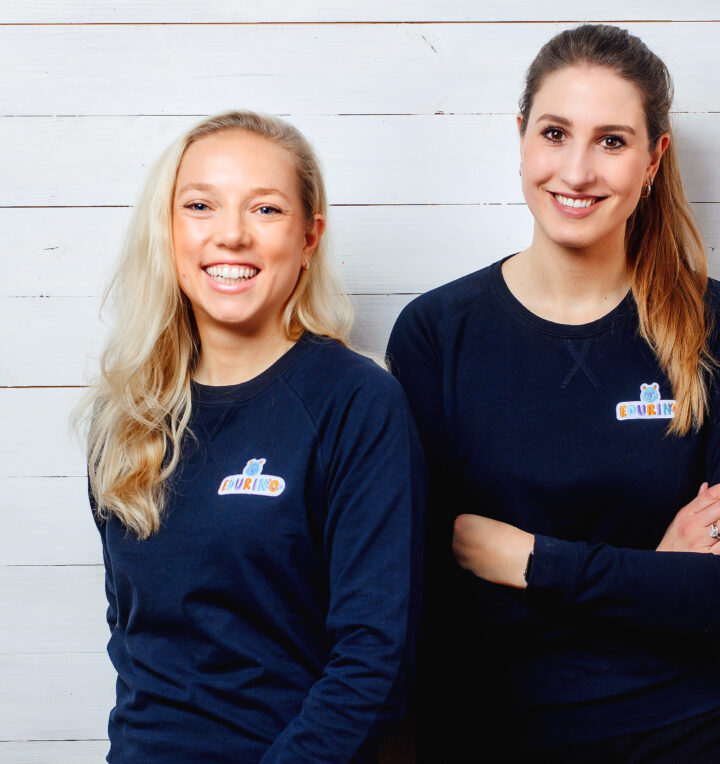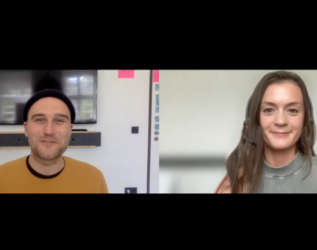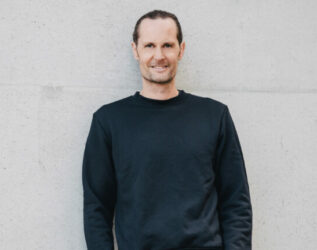A conversation with edtech innovators Irene Klemm and Franziska Meyer from Edurino

How has education evolved? What role does technology play? What role will education play in the future of our planet? We caught up with Irene Klemm and Franziska Meyer from Pirate Impact portfolio company, Edurino, on their innovative offering and their views on the edtech space.
Who are you and what are you doing?
We are Franziska and Irene, the two founders of Edurino. With the start of the global pandemic in 2020, we realized how far behind Germany is in terms of digital education – starting with the lack of wlan infrastructure to the lack of good digital, educational offerings. We decided that we wanted to become part of the solution. Ever since, we have developed a hybrid learning system that consists of haptic figurines and an ergonomic stylus in combination with a learning app.
What drives you personally and how did you get there?
When the idea for Edurino blossomed, we quickly realized how important it is for us to start a business in a field, in which we can see ourselves not only short-term, but for the next 20+ years. We want to think long term and see entrepreneurship as the opportunity to have a lasting impact. Additionally, it drives us to have the opportunity to shape a company and work with brilliant people towards one common goal.
What is Edurino’s elevator pitch?
Our mission at Edurino is to teach children 21st century skills with the power of games – skills range from classical school skills (literacy, numeracy) to coding and english. Haptic figurines are the key to digital learning worlds that adapt to childrens’ individual speed. As soon as kids place the figurine on the screen, the journey begins. With their magic pen – an ergonomic input pen – children navigate the app and practice the correct pen hold.
Since conscious and safe use is especially important to us, parents can regulate screen time in a separate parent area. They also get an overview of the children’s learning progress, information about the pedagogical concept, and tips from our experts on various digital topics.
How has education changed from a decade ago to today?
If we look at the institutional education system, unfortunately, it has hardly changed at all. A great deal, however, has changed around it: Globalization and digitization have led to an extreme increase in the range of continuing education options. Nowadays, anyone can take a continuing education course of their choice at virtually any time and in any place. The job market nowadays demands that employees always continue their education and quickly adapt to the ever-changing challenges. Children, on the other hand, are still being left behind when it comes to (digital) education. Education in kindergarten and school seems to be the same as it was 20 years ago. But this cannot be the case. The gap between what our children should learn and be able to do after their education is widening. We want to change this with Edurino. With our learning games, children should experience having fun while learning, be individually supported and learn future skills that they will really benefit from later on.
If you were to name 3 core skills for parents to help prepare their children for the future what would they be?
Responsibility, authenticity and creativity. In our opinion, it is important that children already learn that they have an impact on this world. Be it in their interaction with other children, with our environment or with their own behavior, such as their own use of the media. In our society, we often underestimate children, but if you spend a few hours in a daycare center, you will notice that children often have much clearer ideas about what is fair and what is unfair. They are also much closer to nature and often have a much closer relationship with animals than we adults do. And children also show quite clearly when they have an urge to move and can no longer absorb learning content. They then often simply take the freedom and express this physically. We adults seem to either not perceive this as well with age or somehow unlearn it over time.
Furthermore, it is important that we teach children to remain authentic. This begins in our role as role models, continues with the child’s own self-perception, and ends with all the influences that are piling up on us these days. Be it advertising, social media, content or goals that our meritocracy demands from us every day. It is important to learn that you don’t always have to compare yourself, but that it is better in the long run to find your own values and then live according to them.
Lastly, creativity should not be underestimated. While we give our children a lot of room for creativity in the beginning, this seems to decrease more and more in adulthood. However, it is important to retain this space. Only if we are creative and innovative can we enrich the world with new ideas and make it a better place.
Over the past several years, DEI has become a hot topic of conversation, and the coronavirus pandemic highlighted the inequalities and barriers that many learners face in the classroom: how can educational technology support DEI?
We think new educational technologies make DEI possible in the first place. Whereas in the past only educated classes had access to new technologies, we now see that globalization is giving more and more people from all backgrounds access to those. The edtech industry plays an important role in this progress. Whereas before we could only learn from role models around us at school or in the family, new digital learning methods give us much broader access to the world of learning. This gives many more people the opportunity to tap into their own prior knowledge to make their learning journey more successful.
One real-world example from our daycare centers: There, children of all skin colors, nationalities and educational backgrounds are mixed. When they play Edurino, everyone can do so at their own pace and according to their own preferences. Even foreign-language children have the opportunity to absorb the German content at their own pace. In school, they probably would have already been left behind by the language barrier if an educator had explained it to all the kids at once. We think new educational technologies will make learning more accessible to more people, and more learning will happen that way. For example, we are also in the process of designing a version of Edurino for special needs children. They, too, should not be neglected in our society. Education is and remains a basic right for everyone and we support that.
What role do you think educational technology will play in building a more sustainable future?
Certainly a major one! If more people have access to education, they can choose the learning content individually and can build on their own prior knowledge. This raises our general level of education to a higher level. This also means that we can better understand global contexts and grasp complex issues. This will also raise awareness of our social responsibility, and more people will learn that they have just as much of an impact on our world as anyone else. Among the current challenges we face, we can only conclude that this will have a positive impact on overall economic, – environmental and – demographic development.
What makes you optimistic about the future of our planet and society?
By giving more people access to education, digitization gives us great potential to develop rapidly. While we have been able to simplify our lives significantly with mechanization, we can now learn to act in a more resource-conserving way with the help of digitalization. This will take us to the next level evolutionarily and help us to live again in harmony with what the world gives us. This relates both to nature, from which we benefit, and to our social interaction. We are not loners and change can only happen together. This is what we stand for at Edurino and we share this vision by always developing our learning content together with the children of our partner kindergartens and the parents and educators.
Do you have any parting advice for aspiring entrepreneurs?
Don’t try to manage everything by yourself – ask for advice and build your network. We have been overwhelmed by how open people are to share experiences and give advice if you just do one very simple thing: ask.





